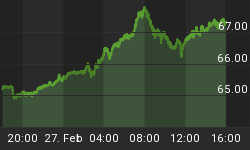In the last week of July, ECB President Mario Draghi attracted investor interest worldwide by saying that he would do "whatever it takes" to solve the Eurozone crisis and, in the process, save the euro. Markets rallied as investors concluded that Mr. Draghi could only be referring to the financial heroine of quantitative easing (QE) and the transfer of toxic Eurozone sovereign debt assets from troubled private banks to EU taxpayers. This mini rally built on momentum that had previously been fueled by belief that Fed Chairman Bernanke would imminently announce a further round of QE in the United States.
Given the record of Central bankers for encouraging hopes that invariably have proved fruitless, it was surprising how international financial markets appeared to be taken for yet another ride. But addiction is powerful and financial heroine is little different to the real thing in its ability to fire optimism.
True to form, neither banker delivered the goods. On August 1st, Bernanke disappointed markets by failing to announce any QE despite offering a gloomy economic outlook. Stock markets wavered, but hung their hopes on Draghi. But the next day the ECB made vague promises of future actions but offered no definitive actions. Financial markets were deeply disappointed. The euro fell as Italian bond yields surged. In the United States, the Dow fell by almost two hundred points at one stage.
In order to lessen the anti-climax, Draghi feigned amazement that his July 26th statement had received so much attention. It was a display of arrogance typical of the Anglo-American led central banks. However, despite denying the markets the red meat that they most wanted, Draghi encouraged further anticipation in three important areas.
First, he undertook to 'address' the problem set by the ECB, insisting on 'seniority' over all other bondholders when making loans to Eurozone governments. Any yielding on this point will involve all EU citizens, including Germans, in greater sovereign risk. Second, Draghi said he 'may' undertake open market operations (QE) in amounts that would make an impact on Eurozone finances. Third, he made it clear that his 'intention' is to have the ECB buy toxic sovereign debt in secondary markets in tandem with the European Security Mechanism (ESM). This would appear to slide around the EU treaty rules forbidding any direct subsidies to member nations by the ECB.
In recent years, Euro politicians have shown themselves clearly willing to override any law and to adopt any suspect tricks to further their aims. However, on September 12th, the German Constitutional Court will decide on German participation in the various legal gimmicks that have been concocted to short circuit constitutional roadblocks. In the past, this Court has shown itself to be no pushover.
Germany is the economic and political powerhouse of the EU, and the Eurozone. Germans disapprove of QE and bailouts for what they see as irresponsible Eurozone nations. Furthermore, German voters have encouraged their politicians to veto the Eurozone's proposal that the ECB be granted a carte blanche license to print money and add even more debt to an already chronic debt problem. In concluding that Draghi will ultimately deliver the interventions, observers miss three crucial factors.
First, the ECB has a governing council of 23 members. According to the Italian daily, La Republica,seven (30%) of the members disapproved of further Eurozone sovereign bond buying by the ECB. A further four members were undecided. This leaves only 12 members, including Draghi's deciding vote, or 52 percent who are positive in support.
Second, the German central bank is by far the richest in Europe and disapproves of the ECB yielding its 'senior' creditor position and also the proposition that the ESM 'bailout' mechanism is granted a banking license.
Third, the Eurozone economic problem, like that facing the United States, essentially is one of solvency, not liquidity. Nothing that Draghi has suggested addresses this issue. Solvency is a political problem over which bankers are impotent.
Based on his recent exchanges with Senators and Congressmen, Fed Chairman Bernanke has realized that the same situation faces the United States. This likely makes him less enthusiastic about the unleashing of more QE policies that have thus far failed to deliver real growth. However, both Draghi and Bernanke know that markets need to be talked up, and they continue to do so unapologetically.
Enormous pressure likely is being exerted on the Fed and ECB by politicians, bankers and overblown financial markets that appear increasingly desperate for more cheap easy money. However, it is likely that the Fed and especially the German influenced ECB will either be unable or unwilling to deliver the easy option on the massive size that markets expect.
Subscribe to Euro Pacific's Weekly Digest: Receive all commentaries by Peter Schiff, John Browne, and other Euro Pacific commentators delivered to your inbox every Monday!
Order a copy of Peter Schiff's new book, The Real Crash: America's Coming Bankruptcy - How to Save Yourself and Your Country, and save yourself 35% off!















